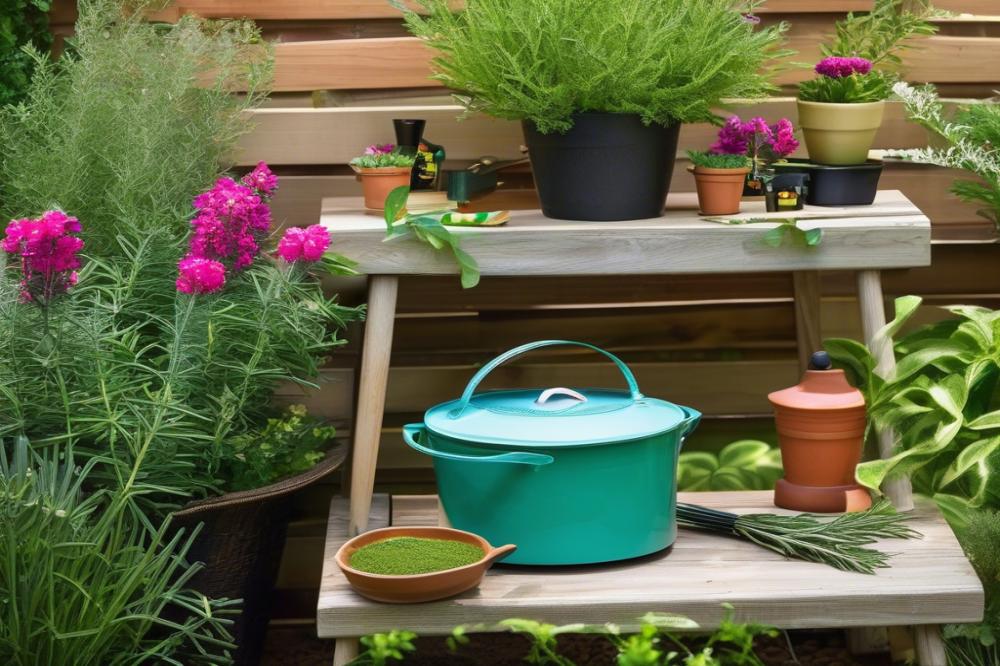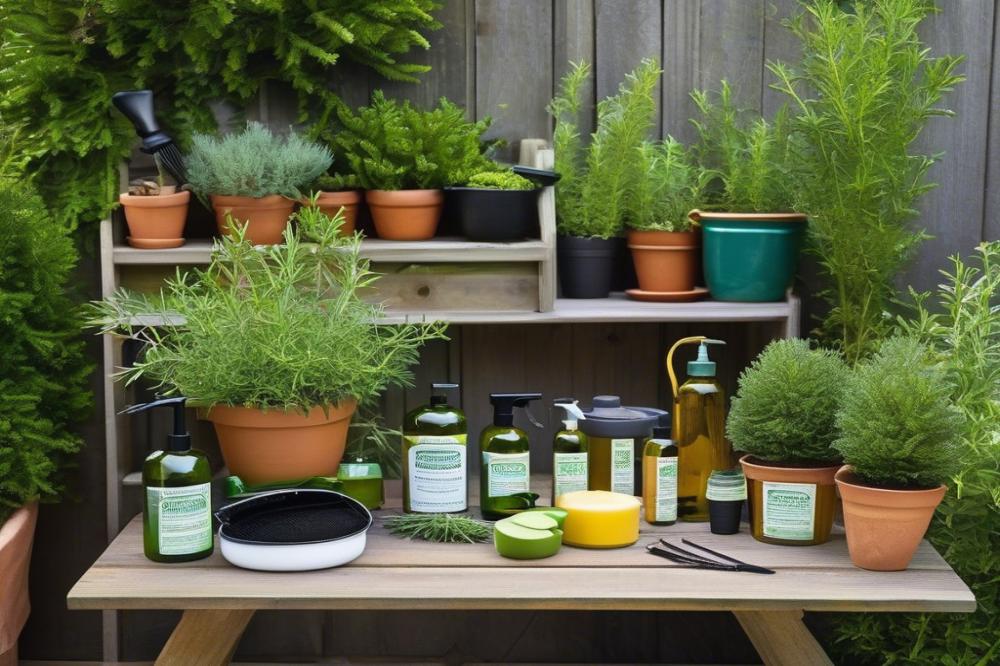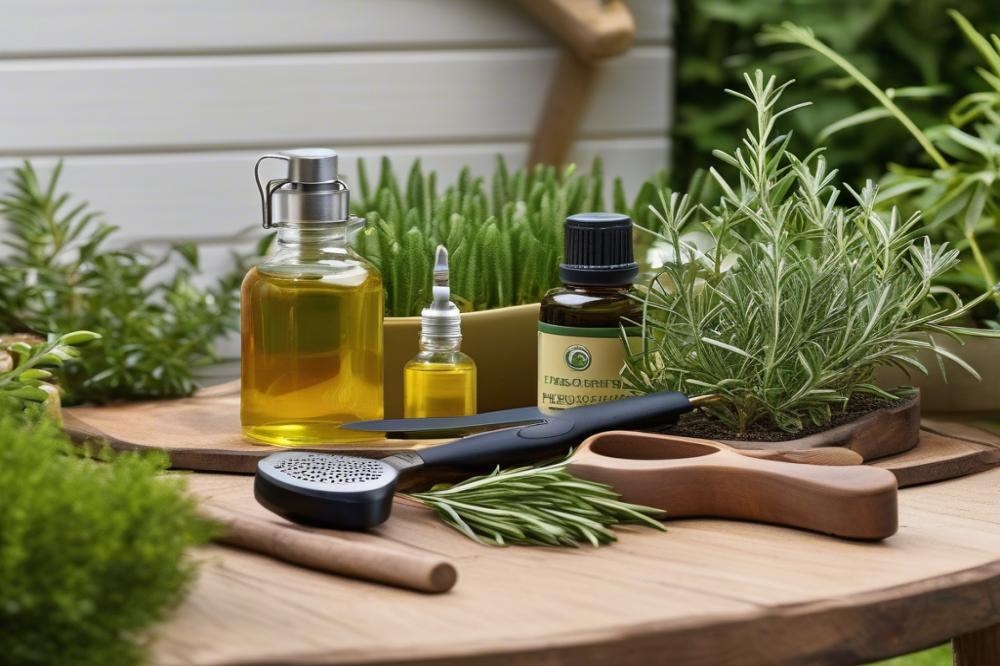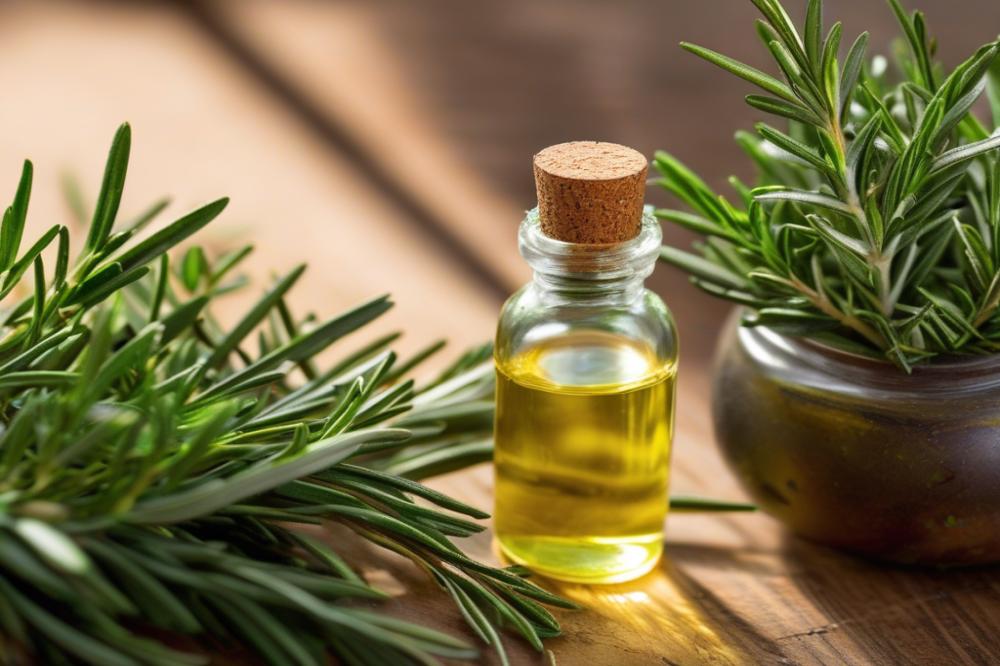Overview of organic pesticides and Their Importance
In today’s world, many people are looking for safer alternatives to chemical pesticides. organic pesticides offer an effective solution for pest control without exposing families or pets to harmful substances. They play a crucial role in protecting our health and the environment.
Rosemary Oil as a Natural Repellent


Among the many options available, Rosemary Oil stands out as a powerful natural repellent. This essential oil has gained popularity for its ability to keep mosquitoes and flies at bay. It acts as both a mosquito repellent and a fly repellent, making it a versatile choice for any home.
Benefits of Using Rosemary Oil for Pest Control


Using this herbal remedy offers numerous advantages. First, it’s safe for kids and pets compared to traditional insect deterrents. Many people also appreciate the pleasant aroma it brings. This alone makes it a favorite in aromatherapy. Additionally, creating a DIY insect spray is quite simple. Just mix rosemary oil with water and a carrier oil. You can easily make effective home remedies without any fuss.
Another benefit is that rosemary oil is eco-friendly. It breaks down naturally in the environment, unlike many synthetic solutions. Choosing a natural repellent means you’re contributing to a healthier planet. Overall, opting for rosemary oil can help you combat pests while maintaining a safe living space.
What is Rosemary Oil?


Rosemary oil comes from the leaves of the rosemary plant, a woody herb known for its fragrant aroma. This oil is extracted through a process called steam distillation. During this method, steam passes through the plant material, capturing the essential oils and separating them from the water.
The uses of rosemary oil extend far beyond just its delightful scent. In aromatherapy, it is praised for its potential to improve concentration and boost energy. It’s a popular addition to many herbal remedies, often used in lotions and balms to soothe aches. Naturally, those interested in home remedies find it appealing for various applications.
Key constituents in the oil contribute to its insect-repelling powers. Compounds such as camphor and 1,8-cineole possess properties that can act as both a mosquito repellent and fly repellent. These natural elements deter pests effectively. Many turn to essential oils like this one as a safer alternative to chemical-filled products.
For DIY insect spray, combining rosemary oil with a carrier oil or water creates an effective natural repellent. Its strong scent is not just pleasant for people; it helps keep unwanted insects at bay. Incorporating this herbal remedy into your pest control strategy offers a practical and fragrant solution.
The Effectiveness of Rosemary Oil as a Mosquito and Fly Repellent


Research shows that rosemary oil can be an effective insect deterrent. Studies indicate that its strong scent disrupts the ability of mosquitoes to locate hosts. In fact, certain compounds found in rosemary may even repel flies. If you’re looking for a natural repellent, this herbal remedy is worth considering.
When comparing it with other essential oils, rosemary holds its ground. Many people use various natural repellents, like citronella and eucalyptus oil. While each has its own benefits, rosemary is not just another option. Its effectiveness can rival those popular choices in pest control. Some prefer combining different essential oils to enhance their insect-repelling qualities.
How does rosemary oil work to keep insects at bay? Its aromatic properties can create an environment that mosquitoes and flies dislike. This characteristic helps make it a solid choice for creating a DIY insect spray. People also enjoy using it for aromatherapy, leveraging the scent not just to repel pests but to create a pleasant atmosphere at home. Home remedies using herbal oils have been popular for ages, and rosemary is a prime example of their herbal power.
Not only is rosemary oil known for its repellent qualities, but it also offers other health benefits. Many appreciate it for its use in cooking, as well as for skin care. Ultimately, using rosemary oil as a mosquito and fly repellent provides multiple advantages. Enjoying its aroma while keeping insects away only adds to its charm.
How to Use Rosemary Oil for Pest Control
Methods for Applying Rosemary Oil in the Garden
Spraying diluted rosemary oil on plants can keep pests at bay. Start by mixing about 10-15 drops of the oil with water in a spray bottle. This acts as a natural repellent. Apply this spray directly onto leaves where mosquitoes and flies like to gather. Early morning or late afternoon is the best time for application. Don’t forget to reapply after rainfall.
Recipes for DIY Insect Sprays Using Rosemary Oil
Creating a DIY insect spray is straightforward. Combine one cup of water with two teaspoons of the oil in a spray bottle. Shake well to mix thoroughly. This simple mixture serves as an effective fly repellent for use around outdoor seating areas. For added strength, consider adding a few drops of other essential oils like lavender or tea tree. These oils can enhance the insect deterrent properties.
Tips for Combining Rosemary Oil with Other Natural Ingredients
Mixing rosemary with vinegar can create a powerful herbal remedy. A combination of one cup of vinegar and one tablespoon of rosemary oil can be effective. This blend works well for repelling mosquitoes. Consider using a little bit of crushed garlic or citrus peels to boost the effectiveness as well. Different scents can confuse insects, making your surroundings less appealing to them. Experimenting with various combinations allows you to find what works best for your space.
Using these home remedies not only helps with pest control but also leaves a pleasant fragrance in your garden. Aromatherapy from the oils enhances your outdoor experience too. Each step you take can bring relief from those pesky flies and buzzing mosquitoes.
Integrating Rosemary Oil into Your Garden Care Routine
Using rosemary oil offers a fantastic way to boost your garden’s pest control efforts. Integrating it with other organic pesticide practices makes it even more effective. Combine it with neem oil or soap-based insecticides for a powerful blend. These combinations can create a natural repellent that not only fights mosquitoes but also keeps flies at bay.
Timing is crucial when applying your DIY insect spray. Early morning or late afternoon is ideal for this task. At these times, many insects are less active. Apply the mixture directly on plants, ensuring you cover undersides of leaves where pests often hide. This makes your herbal remedy much more effective.
Maintaining a pest-resistant environment goes beyond just using one solution. Incorporating various plants can create a natural ecosystem. Lavender, marigolds, and citronella are great companions to rosemary. Together they can significantly enhance your insect deterrent efforts. Aromatherapy can also be harnessed; many plants can help repel unwanted guests while adding beauty to your garden.
Rotating your plants seasonally can also help maintain a healthy balance. Regularly inspect your herbs and other plants for signs of pests. This proactive approach allows you to address issues before they escalate. Home remedies work best when implemented consistently and with care.
Home Remedies Beyond Insect Sprays
Other Uses for Rosemary Oil in Pest Control
Rosemary oil is not only great for keeping mosquitoes and flies away but also works well for other pests. This essential oil acts as an insect deterrent against various bugs. Many people use it in homemade Insect Repellent recipes or as a natural repellent for larger pests too. Blending rosemary oil with other essential oils can create a more potent mix. Experimenting with different combinations can lead to effective DIY insect spray solutions.
Creating a Natural Barrier with Rosemary Plants
Planting rosemary in your garden is a simple yet powerful way to repel insects. These fragrant herbs not only enhance your cooking but also deter pests naturally. A row of rosemary plants can create a protective barrier around seating areas and flower beds. Positioning them strategically in your yard offers added benefits. Consider placing them near entrances and windows to further reduce insect activity.
Tips for Using Rosemary Oil in Outdoor Settings
When using rosemary oil outdoors, dilution is key. Mix a few drops with a carrier oil to make it safe for skin application. Applying this mixture to exposed areas can keep mosquitoes at bay. For broader coverage, consider using a spray bottle. Fill it with water and add several drops of rosemary oil for an easy and refreshing mist. It’s perfect for those hot summer days when bugs are out in full force.
Utilizing rosemary in your outdoor living spaces creates a more pleasant environment. Not only does it provide pest control, but it can also enhance your outdoor experience with its lovely aroma. Don’t forget about the benefits of aromatherapy. Breathing in the scent of rosemary adds a calming touch to your relaxation time, while also working as a fly repellent.
With a few simple steps, you can enjoy a bug-free outdoor space and embrace the power of this herbal remedy. By incorporating natural methods, you reduce reliance on chemical sprays while keeping your surroundings enjoyable.
Safety Considerations and Precautions
Using essential oils, particularly rosemary oil, can be effective for pest control. However, it’s crucial to keep some safety tips in mind. Skin sensitivity and allergic reactions can happen. Always do a patch test. Apply a small amount of diluted oil on your forearm. Wait for 24 hours to see if any irritation occurs. This simple step helps prevent discomfort.
When making a DIY insect spray, proper dilution is key. Essential oils are potent, so combining them with a carrier oil or water is wise. Mix one part rosemary oil with at least four parts of a carrier oil, such as jojoba or coconut oil. For a fly repellent spray, using a ratio of one part oil to ten parts water is recommended. This helps maintain effectiveness while minimizing skin irritation.
Recommended Practices to Ensure Safety While Using Rosemary Oil
It’s important to remember that not all herbal remedies are safe for everyone. Pregnant women, young children, and pets may be more sensitive to essential oils. Always consult with a healthcare professional if you’re unsure. When applying your natural repellent, avoid sensitive areas like the face and cut or broken skin. These precautions will help you enjoy the benefits of rosemary oil without any unwanted side effects.
Storing your essential oils in a cool, dark place extends their shelf life. Use glass or dark plastic containers to protect them from light. Keep them out of reach of children. Educate your family about the importance of using these products safely. By adopting these recommended practices, you can safely enjoy the pest-repelling properties of your unique herbal remedy.
Wrapping Up: The Advantages of Using Rosemary Oil
Using rosemary oil as a mosquito repellent offers numerous benefits. Its pleasant aroma blends well with nature while keeping pesky insects at bay. This natural option stands out among chemical sprays that can be harmful to health and the environment. When looking for effective and safe alternatives, consider how rosemary can contribute to a more comfortable outdoor experience.
Making the switch to natural remedies is easier than you think. Organic pesticides can support a healthier lifestyle and environment. Choosing plant-based solutions protects not just you, but also the environment from harmful chemicals. Embracing these eco-friendly options shows care for the planet and for your family.
Think about incorporating rosemary oil into your pest control strategies. You can blend it with other essential oils for a robust fly repellent. Try creating a DIY spray or using it in diffusers at home. By taking control of your indoor and outdoor spaces, you pave the way for enjoyable experiences in nature.
All in all, utilizing rosemary oil is a smart move. Its ability to repel mosquitoes and flies means you can enjoy fresh air without concerns. So go ahead, give it a try. Experience the benefits of soothing scents while keeping bugs away, and find yourself loving the great outdoors even more!



